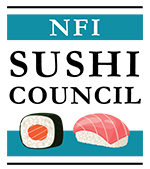Not Slated To Appear
Two things– #1 I like Slate.com, it’s usually fresh, illuminating and not afraid to call a spade a spade; qualities I tend to look for in a publication. #2 I am used to being left on the cutting room floor. My feelings are not hurt when a reporter doesn’t include me in a piece for which I served as a resource. It’s nothing personal, it’s just my job, it happens.
Having said that, I must take issue with a recent Slate posting about sustainable seafood. The Green Lantern blog was helping a reader pick sustainable seafood and called NFI for some guidance and explanation. Guidance The Lantern promptly ignored. After almost a half and hour on the phone and a thorough discussion about the fact that the top 10 most often consumed seafood species make up more than 90% of all the seafood eaten in this country and the array of sustainability organizations that watch over those ten species, the posting contained nary a mention of the sustainability efforts of the Global Aquaculture Alliance, The National Marine Fisheries Services or the International Seafood Sustainability Foundation. Nor did it offer any perspective on what Americans actually eat and how much.
What it did mention was Monterey Bay Aquarium and the Marine Stewardship Council before transitioning into a posting about carbon footprints.
The Lantern’s simple advice was, “the most straightforward thing you can do is avoid eating any species that has been consistently overfished.” The fact is, as I mentioned in our conversation, for the vast majority of Americans they are already doing that whether they know it or not. Again, 10 fish make up almost all of the seafood eaten in this country and those fish are not consistently overfished by any stretch of the imagination.
One more thing while I’m here. The blog quotes “a recent report from the U.N.’s Food and Agriculture Organization” about how 52 percent of the world’s fish stocks, “were fully exploited, meaning that catch levels had either reached or were close to reaching their maximum sustainable limits.” That is true but on page 34 of that very same report the U.N. recognizes that the term “fully exploited” can be a little misleading and often needs some clarification writing, “It should be noted that the status of fully exploited is not undesirable provided it is the result of an effective and precautionary management approach.”


